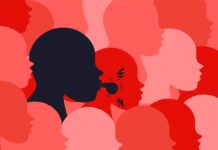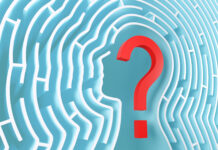The Case of Joshua Spriestersbach: If This Is a Horror Story, What Does it...
Spriestersbach was imprisoned in a psychiatric hospital for almost three years. The more he told the doctors that he was not Thomas Castleberry, the more they believed that he was psychotic.
My Partner Abused Me. I Was the One Locked Up
Every day, psychiatrists in Australia’s mental health system write reports denying the sanity of women who are victims of sexual assault, rape, or domestic violence. I know: I was one of them.
Lead Exposure in Childhood Impacts Personality and Mental Health
A study of over 1.5 million people in Europe and the US links the development of less adaptive personalities with childhood lead exposure.
Garbage in, Garbage out: The Newest Cochrane Meta-Analysis of Depression Pills in Children
In May 2021, Cochrane published a network meta-analysis of depression pills for children. The abstract is misleading and reads like drug company marketing.
Necessary Powers: How I Became Fire
When a person is in hell, surrounded by enemies, without a protector or strong force on their side of any kind, that person needs to become their own powerful spokesperson.
Polydrugged With 12 Different Drugs… For Insomnia
Before my nightmare with psychiatric medication began, my life was full and happy. But since being prescribed 12 different psychiatric drugs in one year, I have become bedridden, ill and jobless.
Why I Fight for Trauma-Informed Systems
I am not sure what was worse: being abused growing up while my community documented—then ignored—my torment, or being attacked for going public with my story.
ISEPP to American Psychological Association: Condemn Forced Treatment
The International Society for Ethical Psychology and Psychiatry petitions the American Psychological Association to condemn forced treatment as a human rights violation
When Treatment Makes You Sick: The Eating Disorder Clinic
Eight years after beginning ‘treatment’ for an ‘eating disorder’, I was eating worse than ever. Yet three years after quitting that ‘treatment’, food is a pleasure, not a problem.
Psychiatry Is the Cause, Not the Solution
I have found that trauma is frequently at the root of many eventual psychological and medical issues. Medications often only worsen the disconnection caused by trauma.
Becoming the Trauma-Informed Trainer I Needed
It was my experience, which I later found was supported by research, that exercise had the power to help me heal, but it also had the potential to exacerbate my trauma symptoms.
Mental Health Survival Kit, Chapter 5 (Part 6): Patient Stories and Conclusion
In an evidence-based healthcare system, we should not use interventions that do more harm than good, but that's just what psychiatry does.
An American History of Addiction, Part 8: A Turning Point, But Where Do We...
Practitioners and researchers have increasingly started to feel that the maintenance of the status quo has left the addiction field in a state of conflict and fluctuation.
How I Learned the Social and Environmental Causes of Madness
My first encounter with mental illness was when I was 17. My friend was hospitalised in the psychiatric unit of the local general hospital and diagnosed with hypomania.
So Long, Pill Mill: A Letter to My Former Patients and Their Families
I love being a psych nurse practitioner, and I never want to feel that my only role is pushing pills. The private practice I started is my effort to move away from this dysfunctional system.
Speak Out! Britney’s Fight Is Our Fight
With all eyes on Britney, we must unmask the role of psychiatrists in court hearings like hers, where basically what the shrink says, goes— and the person’s freedom and human rights are stripped away.
Looking Beyond Self-Help to Understand Resilience: An Interview with Michael Ungar
Ayurdhi Dhar interviews Michael Ungar about how complex systems make us vulnerable and how resilience emerges in context-specific ways.
Mental Health Survival Kit, Chapter 5: Survival Kit for Young Psychiatrists in a Sick...
Peter Gøtzsche describes trying to join the psychiatric establishment to bring attention to critical issues from the inside.
Psychiatric Drugs “Help” By Causing Brain Dysfunction
There are currently ten classes of prescription medications that impair brain function, including both psychiatric and non-psychiatric drugs. A number of non-drug “treatments” do the same.
Suicidality: When Your Feelings Are Too Dangerous
After finding a cop at my door, I learned it wasn’t safe to talk about my feelings of wanting to die. As a result, I spent the better part of the next decade not telling anyone when I was suicidal.
In Memoriam: Paula Joan Caplan
Paula Caplan, known for her fierce criticism of psychiatry and its diagnostic manual, died Wednesday at age 74.
Antipsychotic Adherence Research Overlooks Key Information
Researchers argue for a shift away from a focus on antipsychotic adherence toward understanding service users’ diverse patterns of use.
Mental Health Survival Kit, Chapter 5: Survival Kit for Young Psychiatrists in a Sick...
Peter Gøtzsche explains how psychiatry has reacted when confronted with evidence and stories of lived experience, and how this has corrupted journalism.
New Study: The Clinical High Risk for Psychosis (CHR-P) Model Is Flawed
The CHR-P model focuses on “attenuated psychosis” to predict “transition” to schizophrenia and ignores other factors. But new research shows that the model is a poor predictor.
Unheard Voices: Carlton Brown
In the first installment of MIA's Unheard Voices series, Carlton Brown talks about his life, living on the streets, the psychiatric system, and survival.

































